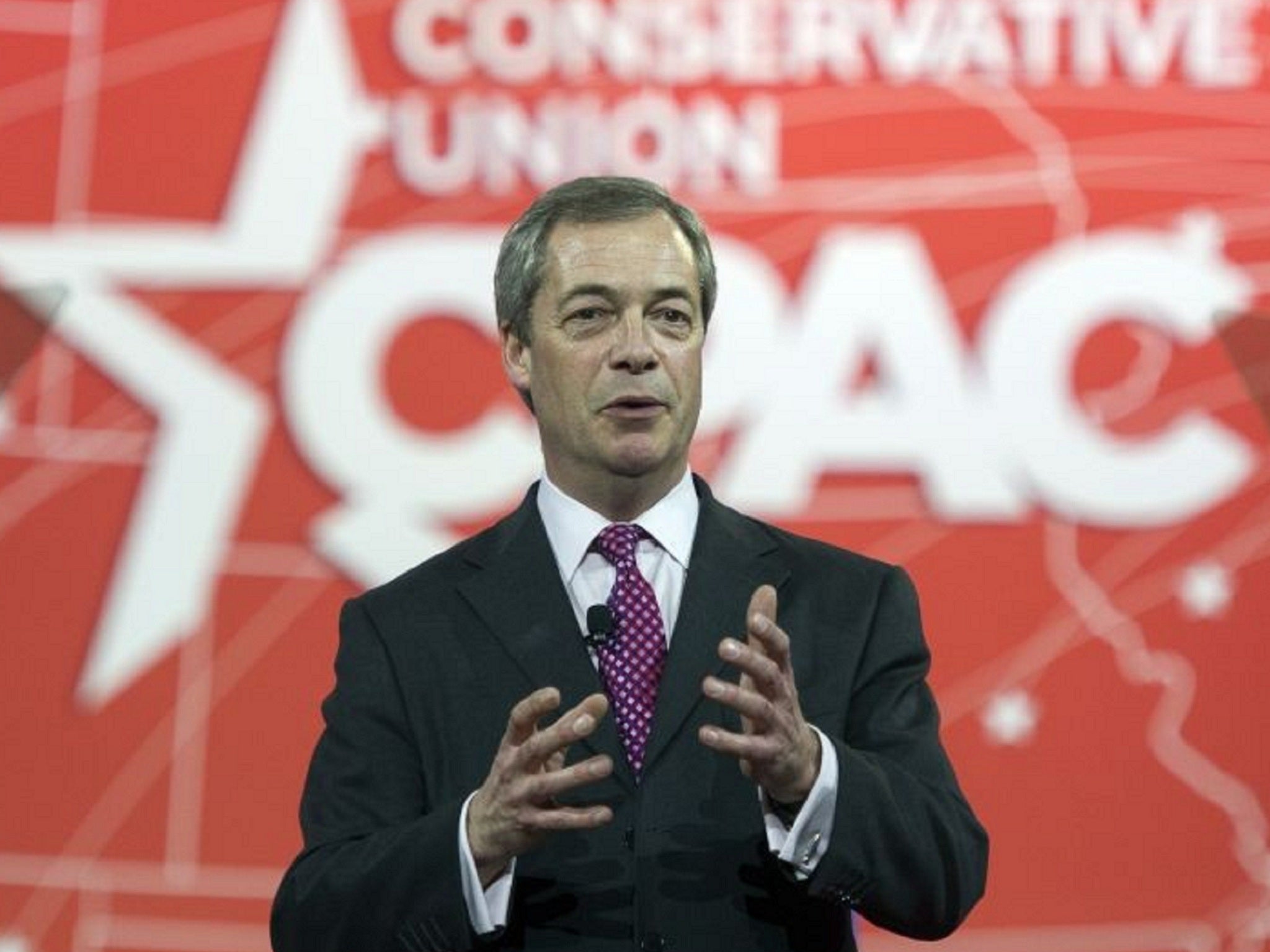CPAC 2015: What I learnt from the US — and what the US could learn from Ukip
We're advocating a popular capitalism that works for all, not a crony corporatism for just the few

On Thursday I spoke at the Conservative Political Action Conference in Maryland in the United States — a huge event that is attended by lots of American Congressman and Senators, as well as freedom-loving activists from around the world.
I was enthused and flattered to be approached, during the course of my 24-hour visit to the venue, by people from Sweden, Belgium, Germany, Ireland, Canada and beyond - many of whom had said they had heard of me and Ukip through YouTube videos of me speaking in the European Parliament.
Truly the world has become smaller in the last decade, and it was with this in mind that I felt it was important to accept the invite to talk to an American audience about the situation in Europe and indeed further afield.
“Where are the Reagan Democrats?” I asked, as an appeal to the idea that politics in Britain is becoming less about left versus right, and more about reconciling the gap between the left behind and those doing well because of corporatism.
While Ukip has, in recent weeks, been bizarrely labelled as both left and right wing - the truth is that this situation has arisen because journalists don't seem to understand that we've transcended the political divide, and indeed have broken the class divide. Those are the types of things a Republican contender will need to bear in mind this year: advocating a popular capitalism that works for all, not a crony corporatism for just the few.
They'll also need to think carefully about the major issues of the day, and leading on issues despite what the political classes might dictate as consensus. Immigration is one of these in the UK, and I was delighted to see that this week, a survey revealed that the British public thought Ukip's immigration policy was the most appropriate for Britain. More in fact, than the support for all the other parties put together.
And the reason for this is that I genuinely believe, and we’ve made the case, that controlled immigration is more fair, sustainable, and ethical and that an open borders policy that discriminates against the Indian doctor, in favour of the European labourer is not right. The British people see this too.
There’s one more key theme I talked about at CPAC this week – and that was the issue of foreign interventionism and our seemingly endless wars abroad. This is evidently tied in to how we use our foreign aid budget too, but the point I made earlier this week in the United States was that Britain and America shouldn’t jump so quickly into foreign wars without thinking about the ramifications.
Look at Iraq and Afghanistan – it’s difficult to make a case that these countries are better off, and that we are more secure as a result of our foreign wars. Look at Syria, where one day we were urged to arm the “rebels” and the next day we were told that these were the violent forces of Islamist extremism. And look at Libya – a country in dire straits, where it has never been more scary to be a practicing Christian.
No, what I urged this week was that while Isis is of course the greatest security threat the Western world faces, we should not be inclined to rush in with boots on the ground. This is a situation that requires a global response, and indeed the armies of the Middle East and North Africa should be on the frontlines of this battle, with logistical support from us if they really require it.
Because we have our own problems, and we’ve seen this week, that America does too, in terms of home-grown extremism and terror threats – and we should be primarily concerned with these issues, on our home turf.
All in all, I found my first CPAC experience to be a highly interesting one, and I was grateful to be able to speak as a guest there. Those who don’t quite know the full extent of American politics may find some of the stuff on offer a little full-on – but this is how Americans do their politics; with their heart on their sleeves. And there’s something very charming about the pursuit of individual liberty, smaller, less intrusive government, and lower taxes, in this environment.
Join our commenting forum
Join thought-provoking conversations, follow other Independent readers and see their replies
Comments
Bookmark popover
Removed from bookmarks